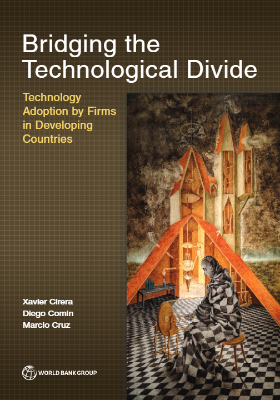Technological transfer and absorption play a critical role in development. As the Commission on Growth and Development pointed out, “learning something is easier than inventing it” (Commission on Growth and Development 2008, 2). Learning, while not without cost, allows technological latecomers to rapidly gain ground on the technological leaders by importing and absorbing technologies that are already created. “Knowledge acquired from the global economy is thus the fundamental basis of economic catch-up and sustained growth” (Commission on Growth and Development 2008, 41). Indeed, in all the cases of sustained, high growth (at a rate of 7 percent or higher for a period of 25 years or longer since 1950) that the commission examined,
the economies have rapidly absorbed knowhow, technology, and, more generally, knowledge from the rest of the world. These economies did not have to originate much of this knowledge, but they did have to assimilate it at a tremendous pace. That we know. What we do not know—at least not as well as we would like—is precisely how they did it, and how policy makers can hurry the process along. This is an obvious priority for research. (Commission on Growth and Development 2008, 41)
This book seeks to understand how firms in southern Africa absorb technology and how policy makers can hurry the process along. It identifies channels of technology transfer and absorption through trade and foreign direct investment (FDI) and constraints to greater technology absorption, and it discusses policy options open to the government and the private sector in light of relevant international experience. The book is based on case studies of sectors and enterprises selected in four countries: Lesotho, Mauritius, Namibia, and South Africa.
The Relevance of Technology Absorption to Southern Africa
The relationship between technology absorption and catch-up growth is particularly relevant to southern Africa because those countries are facing tremendous competitiveness challenges and must rely on greater technology absorption to raise productivity and strengthen competitiveness to gain ground in the global market. An increased market share can then generate faster growth and create more jobs. Therefore, catch-up growth sustained by technological progress and productivity growth is the fundamental solution to unemployment and poverty alleviation.
Southern African manufacturing industries are squeezed by competition pressures on two fronts. On one front, countries in southern Africa face competition from knowledge-intensive economies in the industrialized countries, which occupied 70 percent of the global manufacturing market in 2005. On the second front, these southern African countries must compete with other developing and transition economies, including the emerging manufacturing giants in Asia, which derive much of their competitive strength from low labor costs. Together, other developing and transition economies enjoyed a market share of over 20 percent in 2005, leaving only 1 percent for Sub-Saharan African firms, of which South Africa alone accounts for more than half.
Southern African manufacturing industries may have very limited competitive advantage in terms of labor cost in competing with Asia. In particular, South Africa, the leading manufacturing economy in Africa, suffers a competitive disadvantage in terms of its labor costs. This general view was confirmed by a recent analysis of United Nations Industrial Development Organization data (Mengistae 2011) at the industry level. As illustrated in figure O.1, the advantage that South Africa used to enjoy in terms of lower unit labor cost over the other comparator countries has been lost as the other countries have been catching up since 2003. Of the six sectors studied, meat, fruit, and vegetable processing appears to be the only sector where South Africa has a clear advantage in lower costs.











